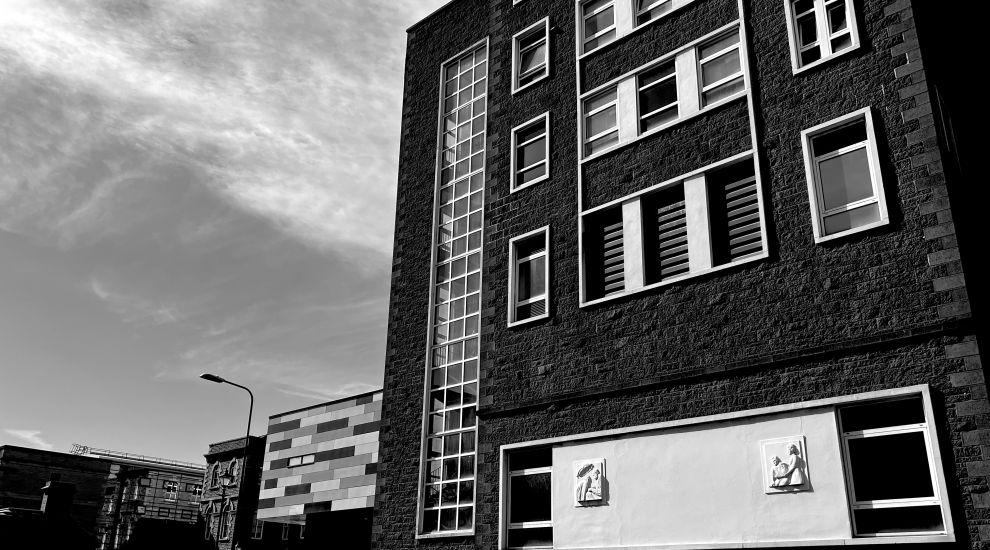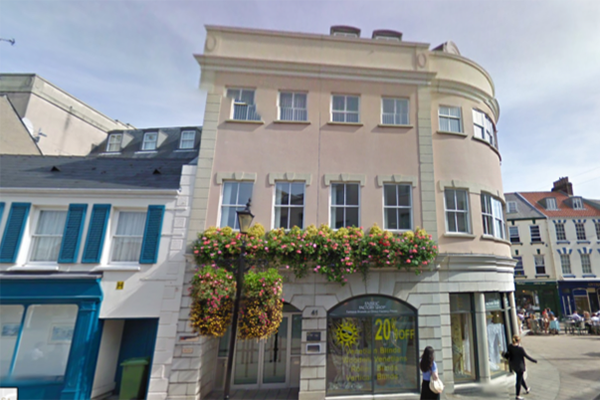


Safeguarding concerns have been raised at an inquest into the death of an 81-year-old care home resident, who was admitted to hospital with a pressure sore one nurse described as "one of the most serious I've ever seen".
According to the General Hospital's former tissue viability nurse specialist, care pathways for people suffering from pressure sores still need improving - despite the introduction of an Island-wide Pressure Ulcer Prevention and Management Framework in September 2021.
Pressure sores are damage to the skin that comes from sustained pressure, and can present as intact skin or an open injury, with the most serious cases resulting in full tissue loss, and potentially bone, tendon or muscle being exposed.
The framework was put in place to ensure a "standardised" approach for pressure sore care across the island, and aimed to help address "concern" around the prevalence of pressure sores in local health settings.
The Island-wide Pressure Ulcer Prevention and Management Framework was released in September 2021 following the Health Department's performance report which showed that, in that year to June 2021, there were 11 incidents involving pressure ulcers of the most serious kind (Category 3/4), and 84 in Category 2.
Carole Brett, former tissue viability nurse specialist at the hospital, said: "It is a framework, not a policy."
She explained: 'We need individual clinical referral pathways in each organisation. As far as I know, these have not yet been identified."
She also added that formal treatment plans, standardised dressing, and additional training is also needed in the area.
The renewed concerns were raised in an inquest yesterday which was held to determine if the care that an 81-year-old received in the months leading up to his death was correct.
The inquest into the death of Roland Edmund Baldwyn Childe, who was known as Eddie, resumed this week after being adjourned in May 2021 to allow further evidence to be collected.
Yesterday’s inquest heard that Mr Childe was taken from his care home to A&E a month before his death after his health deteriorated.

Pictured: The inquest was held at International House, The Parade.
Mr Childe was admitted to hospital on 12 July 2019 with a severe chest infection and sepsis. He had also been suffering from dementia and Parkinson’s Disease for five years.
Although Mr Childe’s sepsis was successfully treated, he developed aspiration pneumonia, which is usually fatal in someone so frail, and it was therefore decided to manage his conditions rather than attempt to prolong his life.
He died naturally at the hospital on 13 August 2019, with aspiration pneumonia due to Parkinson’s Disease given as the primary cause.
However, Mr Childe also had an infected pressure sore on his buttocks which gave rise to safeguarding concerns.
Mrs Brett, who was the tissue viability nurse specialist at the hospital when Mr Childe was admitted, said that he arrived at hospital in a "terrible state" and described his pressure sore as "one of the most serious I’ve ever seen".
‘When I entered the ward, you could smell the odour [of the sore] from across the room even though he was on a large six-bedded bay,’ she added.
The pressure sore was first noted in November 2018, when Mr Childe was being cared for at L’Hermitage Care Home.
In June 2019, he was moved to Beaumont Villa Care Home which is a Dementia Unit located within the grounds of L'Hermitage Gardens Retirement Village.
The inquest heard evidence that, during the period from November 2018 to Mr Childe’s hospital admission in July 2019, his pressure wound was treated regularly and would often improve before worsening again.
The main safeguarding concerns were focussed on the period from June 2019 to Mr Childe’s hospital admission on 12 July 2019.
Mrs Denise Childe, through her lawyer, Advocate John Bourg expressed concerns that there were "no external visits [from medical professionals to the care home] for about a month from 14 June".
The inquest heard from Dr Bob Parris, the registered GP of Mr Childe, who last assessed his pressure sore during a visit to the care home in June 2019. He described the sore as "improving" at that time.
However, when Advocate Bourg showed Dr Parris photographs taken of Mr Childe’s pressure sore when he arrived in A&E a month later, the GP described the wound as "horrendous".
"The pressure sore that I saw looked nothing like this," he said. "This is far worse than what I saw."
"Frankly, there’s no way I would’ve sat on that," he added.
Advocate Boug also showed the same photographs to a tissue viability nurse from the Family Nursing and Home Care team who visited Mr Childe in his care home.
"The last time we were involved on 14 June, the wound did not look like that," she said.
"If we had come in and seen that, it would have been an escalation to the GP to consider surgical intervention."
She added that she "very rarely" sees pressure sores of that level of seriousness.
Upon Mr Childe's admission to hospital in July, Mrs Brett reviewed his notes from the care home. The inquest heard that photographs of the pressure sore were not included in the notes, with entires describing the camera at the care home “not functioning” at the time.
However, when asked about this by Advocate Bourg, Frank Cummings — who was Clinical Director of the Caring Homes group, which includes L’Hermitage, at the time of Mr Childe's care — said: "Every single carer I know in that company had suitable camera equipment to take photographs."
After Mr Childe's admission to hospital, the severity of his pressure wounds was raised as a safeguarding issue and a safeguarding meeting was held.
The Adult Safeguarding Team Manager, Mary Munns, who chaired the meeting told the inquest that "there was no one at that meeting that felt there had been neglect".
However, Mrs Childe was unsatisfied with the outcome of the meeting and the issue was therefore escalated to the HCS Serious Incident Review Panel.
The Panel reported that they were unable to investigate Mr Childe's pressure sore as it had occurred in a private care home and not in a HCS care setting. They confirmed that "it is therefore the responsibility of the care provider to investigate [the incident], and alert any other provider involved in the care".
A letter was sent to the Caring Homes group head office from Paul Hughes, who was Deputy Medical Director of the Hospital at the time.
An extract from the letter, which was read at the inquest, said: “Had the Grade 4 pressure ulcer occurred in our care, a serious incident review would have taken place as it resulted in serious injury to one or more people, and resulted in serious harm.”
Advocate Bourg — speaking on behalf of Mrs Childe — asked Mr Cummings, Clinical Director of the Caring Homes group, if L'Hermitage care home carried out a review as a result of this letter.
Speaking via video link from the UK, Mr Cummings told the inquest that he was was unsure if a review had taken place as a direct result of this, but said that audits are carried out regularly across all of the Caring Homes group care homes.
However, he admitted that there had been difficulties during 2019 as pandemic restrictions meant that auditors struggled to visit Jersey care homes.
“We actually monitor every single pressure ulcer," added Mr Cummings. "If it gets to Grade 3 or 4 then we would be aware of it."
Mr Cummings was also unable to confirm if Mr Hughes' letter had been replied to.
The inquest also heard entries from Mrs Childe's diary from when she was visiting her husband in L'Hermitage care home, and later Beaumont Villa.
She repeatedly referred to being “sad and worried” about her husband's pressure sore, and was concerned that he was spending too much time in his wheelchair.
“For more than nine months, my husband suffered excruciating pain," she said. "How could this have happened?”
Mrs Childe concluded: “To put loved ones into a care home is one of the hardest decisions anyone has to make... I trusted them to care for my husband but, in my opinion, they failed.”
“Something from my husband’s death has to be said or done."
The inquest is due to conclude today.
Comments
Comments on this story express the views of the commentator only, not Bailiwick Publishing. We are unable to guarantee the accuracy of any of those comments.